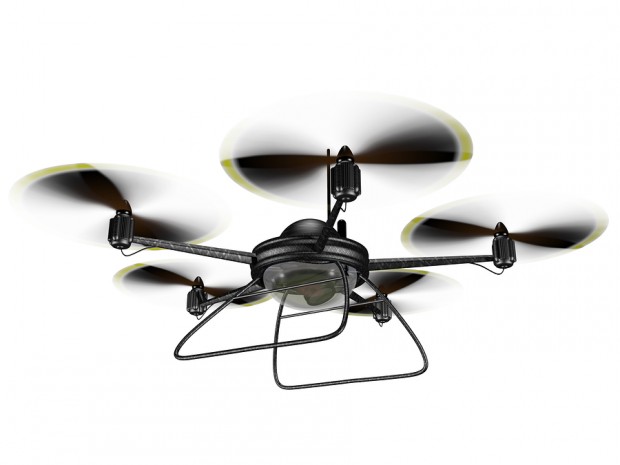U.S. aviation regulators loosened restrictions on the commercial use of drones on Thursday, granting six television and movie production companies permission to use the small, remotely piloted aircraft to shoot scenes on closed sets.
The Federal Aviation Administration said it would allow filming with drones provided the aircraft weigh 55 pounds (25 kg) or less, are used within sight of the remote pilot, who must hold a private pilot’s license, and are flown under 400 feet (120 meters) in altitude, among other restrictions.
The approval marks a major advance for the growing drone industry, which is expected to generate billions of dollars in economic activity once restrictions on commercial use of drones are removed. The FAA currently bans most commercial drone flights, but is required by Congress to integrate drones into the U.S. airspace in coming years.
“This is the first step to allowing the film and television industry to use unmanned aircraft systems in our nation’s airspace, and it’s a milestone in the wider effort to allow unmanned aircraft for many different types of commercial use,” Transportation Secretary Anthony Foxx said in a conference call.
The six companies that received FAA exemptions from the drone ban are Astraeus Aerial, Aerial MOB LLC, HeliVideo Productions LLC, Pictorvision Inc, RC Pro Productions Consulting LLC dba Vortex Aerial, and Snaproll Media, LLC.
The FAA said it has asked for additional information from Flying-Cam Inc, a seventh aerial video company that filed for exemptions with this group in June. The agency said it is working closely with the company to obtain the information.
In granting the exemptions, the FAA barred the six companies from making drone flights at night, required that flights take place on sets closed to the public, and said operators must inspect the aircraft before each flight.
The film and television industry hailed the FAA decision.
“Today’s announcement is a great victory for the industry but also a great victory for audiences,” Chris Dodd, chairman and chief executive officer of the Motion Picture Association of America, said on the conference call.
Dodd noted that drones have been used in other countries to film scenes in such movies as the James Bond film “Skyfall” and the “Harry Potter” series. “This is going to bring a lot of business back home to the United States,” he said.
Quick Approval
The drone industry has mushroomed in recent years with the arrival of small, inexpensive remote-control aircraft that can carry cameras, sensors or other equipment that makes them useful for a wide range of uses, from inspecting oil pipelines to crop dusting to locating people lost in the wilderness.
The drone industry would create at least 70,000 U.S. jobs in the first three years after the aircraft are integrated into U.S. airspace, and generate nearly $14 billion in economic activity, according to the Association for Unmanned Vehicle Systems International, a trade group.
The FAA’s approval shows the agency working relatively quickly to approve new uses, since the petitions for exemptions were filed in May and June. Under law, the agency had to respond to the requests in 120 days, said attorney Jonathan Hill, of counsel at Cooley LLP, who filed the exemption requests to the FAA.
“It’s for the six specific companies on closed-set filming,” said Hill. “It’s restrictive and regulatory in nature. But it’s a welcome first step.”
The exemptions come as the FAA is still drafting proposed rules for integrating commercial drones into the national airspace. A draft set of those rules is circulating in Washington, according to industry sources, but the FAA is widely expected to miss a deadline of publishing the draft rules this year.
Final approval is expected to be years away, which means exemptions like those granted on Thursday are the only way businesses can legally get permission to use them.
Last year, the U.S. government created six sites for testing broader commercial uses, in Alaska, Nevada, New York, North Dakota, Texas and Virginia.
Among the potential uses: Google Inc has said it is developing airborne drones capable of flying on their own and delivering anything from candy to medicine. Amazon.com Inc announced plans last year to use drones to make home deliveries.
(Reporting by Eric Beech; Editing by Sandra Maler, Marguerita Choy and Ken Wills)





















 Flood Risk Misconceptions Drive Underinsurance: Chubb
Flood Risk Misconceptions Drive Underinsurance: Chubb  What Analysts Are Saying About the 2026 P/C Insurance Market
What Analysts Are Saying About the 2026 P/C Insurance Market  Modern Underwriting Technology: Decisive Steps to Successful Implementation
Modern Underwriting Technology: Decisive Steps to Successful Implementation  Retired NASCAR Driver Greg Biffle Wasn’t Piloting Plane Before Deadly Crash
Retired NASCAR Driver Greg Biffle Wasn’t Piloting Plane Before Deadly Crash 


